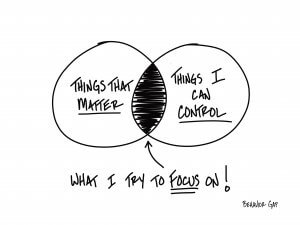
Permanent Insurance vs. Term Insurance
Financial PlanningMay 19, 2023
Once you determine how much life insurance you need, you then need to figure out what type of insurance is right for you. Simply put, you can either buy a term policy that will expire at some point or you can buy a permanent policy that will remain in force until your passing as long as you pay the necessary premiums.
Term insurance is very popular for a couple of reasons. The first reason is cost. Term insurance is the least expensive way to buy life insurance. The reason it is so cheap is because it is limited to a definitive period of time usually ranging from 10 to 30 years. As we highlighted in our article about how much insurance you need, many of your reasons for needing insurance may not last forever. For example, the time to pay for your children’s education will eventually arrive and pass. Maybe it isn’t such a bad thing if some or all of your life insurance expires at some point.
Just make sure the term you choose makes sense for your situation. You may have seen the commercial about Big Lou offering a 50-year-old man who is overweight and diabetic $1,000,000 for $200 a month. If you read the fine print, you’ll notice that the policy is for 10 years. Thus, the policy will expire in 10 years and then you’ll be 60, overweight, diabetic and uninsured. The cost will be significantly higher than it was 10 years ago. You’re also $24,000 poorer. It kind of sounded too good to be true, didn’t it?
Permanent insurance has a significantly higher cost, but it also offers some added benefits for those costs. Many permanent policies build a cash value over time that can be positioned to you as an additional retirement savings vehicle. There are tax efficient ways to utilize the cash value and it can sound like a really good proposition. There are some landmines to look out for like many insurance products. You need to determine what is guaranteed and what isn’t with the projected growth on the cash value.
Whole Life policies usually carry some type of fixed rate with a minimum guarantee. They also have a set premium to be paid every year. We would advise to take the time to read the projections of the cash value based on the guaranteed rate so you know what your worst-case scenario is.
You need to be very careful with Universal Life policies. They don’t carry as many guarantees as Whole Life policies and even have flexible premium payments. There are plenty of ways for an insurance salesman to make a UL policy sound attractive. The buyer needs to pay very careful attention to the fees and the premiums that would guarantee to keep the policy in place. We’ve seen cases where people in their 80’s see a significant premium increase to keep the policy in place or they risk losing it.
Many insurance-based planners will recommend permanent life insurance as a retirement savings vehicle. Our opinion may be biased since the focal point of my business is not insurance; however, we don’t completely agree with that concept. If you look purely at the numbers, you would likely have more money by buying a term policy and investing the cost savings in stocks. Of course, that would assume that you have the discipline to actually invest the funds. Furthermore, the insurance policy has some tax advantages and guarantees that may be attractive to you. As always, it depends on your situation. As we mentioned when discussing annuities, insurance products can be very complex and easily misunderstood. Choosing the type of insurance to purchase will come down to your goals and preferences. It is also worth noting that you can do a mix of both. Regardless of what you decide, always be skeptical when someone like Big Lou offers you something that sounds too good to be true.


